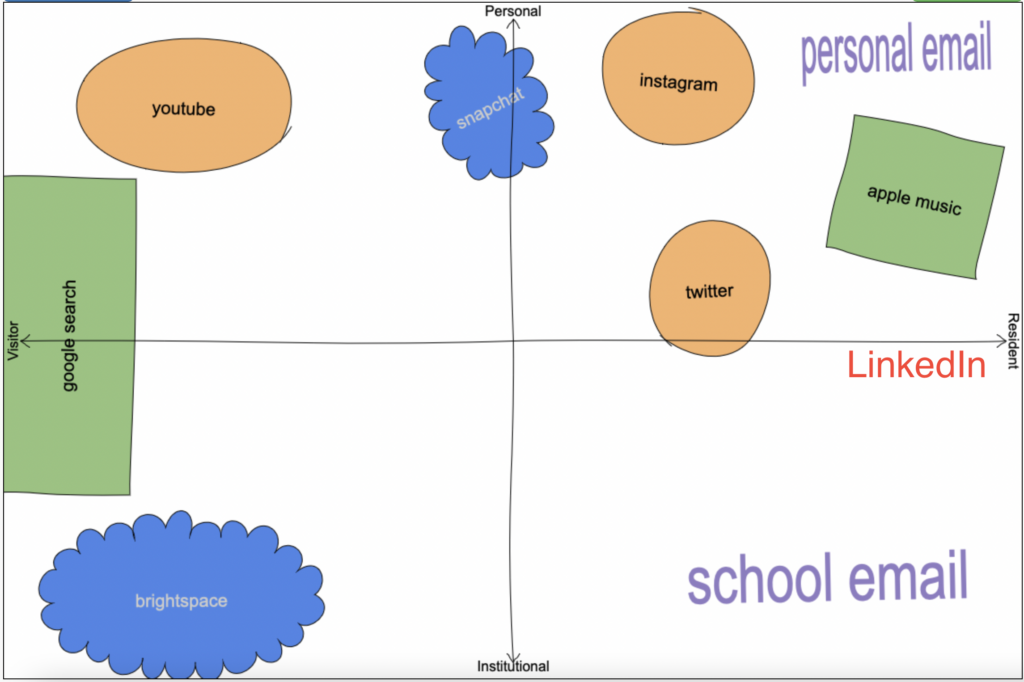What digital platforms are students currently using to develop their professional network?
Professional networking platforms are excellent for students to jumpstart their professional careers. LinkedIn is the go-to professional network for students. Students flock to linked in as its user interface is similar to other social media platforms, promoting a natural and seamless transition for users.
As a daily LinkedIn user and student, I can vouch for its applicability to students in both academic and professional realms. Before starting my undergraduate business commerce degree at UVic, I knew no one in my program. By updating my educational status on LinkedIn to display “University of Victoria – Bachelor’s of Business Commerce, 2025”, LinkedIn’sn’s algorithms were able to immediately ping other users of the same status, providing me with the option to reach out and establish a connection with them. As August closed out prior to my start in September, I was able to connect with a few classmates of mine, allowing me to have already formed a network before ever even setting foot at my new school.
Establishing an online presence on a professional platform such as LinkedIn is crucial for students. LinkedIn’s algorithms promote content, so continued engagement such as posts and comments helps increase viewership on one’s profile. In turn, this engagement with your online network and community can help grow your personal brand by maximizing outreach and creating new connections. Regardless of one’s current educational or professional status, it is always important to continue updating your network.
What could the student consider in expanding their professional learning network?
Expanding your professional learning network as a student is a very intuitive process. Most students are in the same boat. They are looking to find internships and excel academically, so they must learn to network professionally. Students can get involved within their school community in many ways to expand their professional learning networks. For example, students can join clubs and societies at their school. Attending events such as a club fair would allow a student to gauge different opportunities and ideally find something that interests them or aligns with their values and interests. At UVic, I joined the UVic Consulting Group. This group helps students establish a network with like-minded individuals, as well as advises and directs students from start to finish in the hiring process at consulting firms. Lastly, the UVic Consulting Group also helps connect students with potential employers and business professionals, promoting the growtstudents’ts’of s professional learning networks.
How does data privacy and security limit and/or promote a PLN? In your network how can you create a digital identity/ reputation?
Regarding the “perfect” lifestyle and appearance online, many users must remember not necessarily to not believe what they see online, but more to take what they see with a grain of salt. Platforms continually chase the authenticity and realness sectors of online public networks and social media by consistently updating their platforms. Before BeReal, there was Beme. Beme (or be-me) allowed users to share a 1-2 minute video from the front-facing camera of their phone. Here’s the catch; when a user starts recording, the screen would blackout. This tactic was used to encourage the user to be present in the moment and avoid worrying about the quality of the video. After the recording would finish, the video would immediately upload the user’s network in an unedited, raw state. Beme was short-lived, as one of its major flaws was that users (myself included) found there was not enough privacy. Ultimately if anything were to happen when recording that you might not want to be posted online, there was no control on the user’s end to protect their safety or privacy. As businesses chase this “realnesss” phenomenon, they must be aware of the fine line between too much and too little amounts of privacy.


“Beme (app).” Wikipedia, Wikimedia Foundation, 28 May 2022, en.wikipedia.org/wiki/Beme_(app). Accessed 1 Oct. 2022.
Leave a Reply